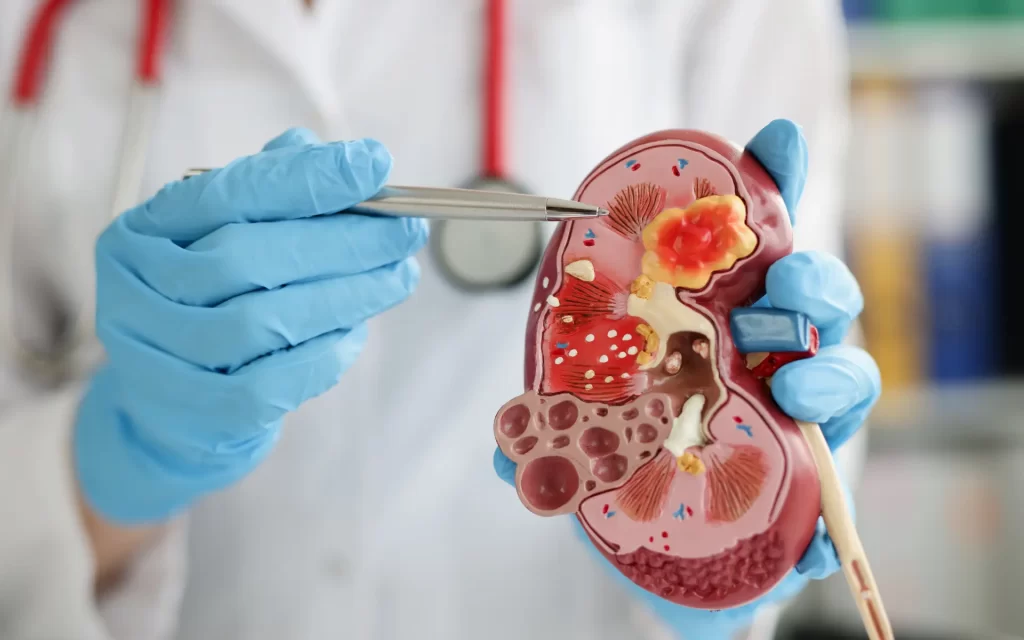
Kidney stones are a common and uncomfortable urological condition affecting millions worldwide. That’s why understanding the causes, signs, and treatment options for kidney stones is important for early diagnosis. Suppose you are experiencing symptoms of kidney stones, such as intense pain in the lower back or blood in urine, and are searching for an expert urologist. In that case, Dr. Abouelleil is a well-known urologist who offers a patient-centered method and advanced treatment options for kidney stones. Here, we will provide everything you need to understand about kidney stones, their types, symptoms, and more.
Kidney stones are solid masses made of minerals and salts formed due to an imbalance in urine substances, including calcium, oxalate, and uric acid. Larger kidney stones can cause extreme pain and other symptoms by blocking the urinary tract, while small stones may pass naturally.
Understanding kidney stones’ causes and risk factors is important for early diagnosis. Some common causes and risk factors include:
Here are some common symptoms of kidney stones, which include:
If you experience these symptoms, immediately consult an expert urologist, such as Dr. Abouelleil, for early diagnosis and treatment.
Several advanced diagnostic tools are used to diagnose kidney stones. The diagnosis process typically involves:
Physical examination
Imaging Tests
Early diagnosis can prevent complications such as kidney infections or damage.
Dr. Abouelleil is dedicated to providing personalized treatment plans to relieve symptoms and prevent recurrence:
Non-Surgical Management
Minimally Invasive Procedures
Surgical Intervention
Choosing the right urologist is crucial for effective and long-term kidney stone management. Some key reasons to choose Dr. Abouelleil for kidney stone treatment include:
Frequently Asked Questions About Kidney Stones
Answer. Kidney stones are hard stacks of minerals and salts formed inside the kidney, often due to the concentrated urine, which allows minerals to crystallize and stick together, forming a stone.
Answer. Some common early signs of kidney stones are frequent urination, sharp pain in the back or side, painful urination, blood in the urine, etc.
Answer. The diagnosis of kidney stones involves several tests, including imaging tests, such as CT scans, ultrasounds, X-rays, urine and blood tests, etc.
Answer. No, kidney stone treatment depends on factors such as the stone’s size, type, and location. Smaller stones may pass naturally, while larger stones may require medical interventions.

Dr. Mourad Abouelleil is a highly skilled and certified urologist known for his dedication to excellence in advanced urological procedures, such as robotic prostatectomy, HIFU, etc. With cutting-edge technology and extensive experience, Dr. Mourad Abouelleil provides personalized treatment plans to meet the unique needs of every patient with quality medical care.
Error: Contact form not found.